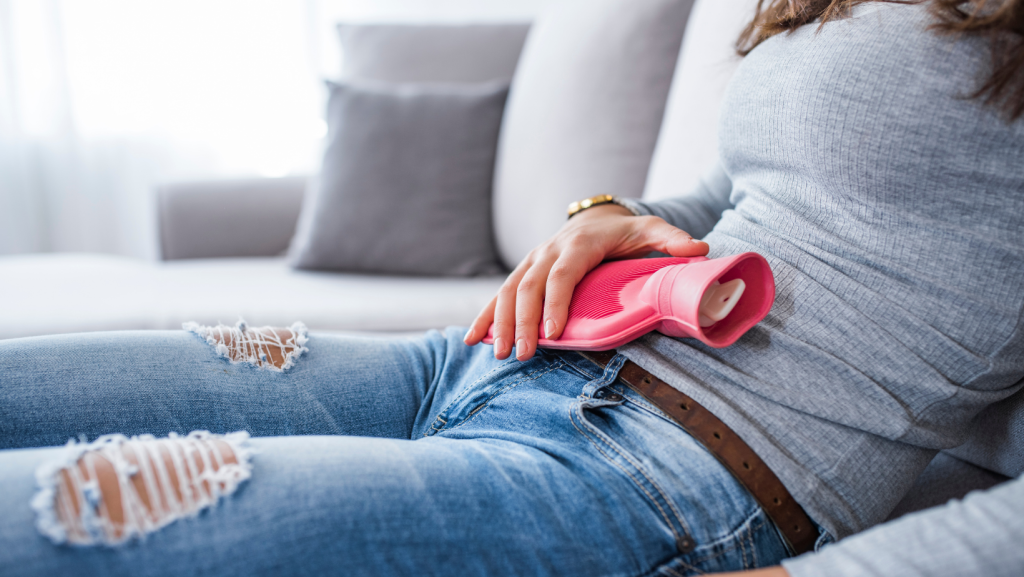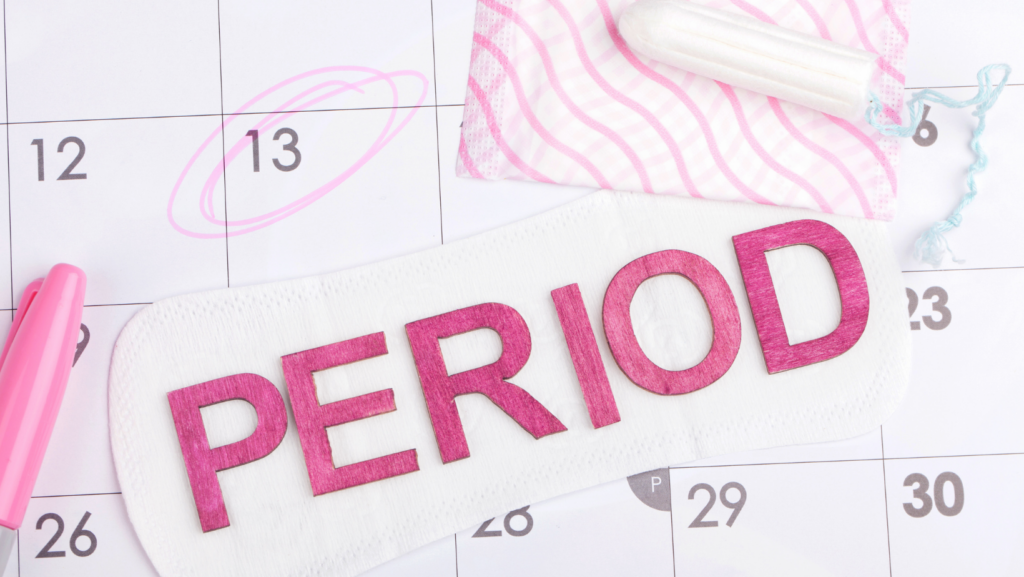Although menstruation is a natural part of life for over half the human population on the planet, it is a subject that many people still have difficulty discussing. Some people are ashamed or embarrassed to talk about it, while others might not fully understand what is happening when someone is on their period. In this article, we talk about things you need to know about your period, including blood flow, pain relief and PMS.
Bleeding on your period
Depending on the stage of your cycle, your menstrual blood may change colour. At the beginning and end, the blood may be brown or pink, and when your flow is at its heaviest, it is red.
How heavy your periods are can be different for everyone and it can also vary from one period to the next. Some people have a very light flow and do not bleed much. Others may have a very heavy flow where it feels like they bleed a lot. If you are concerned about your flow, especially if you are bleeding very heavily on your period, consult your doctor.
Dealing with pain during periods
Menstrual pain is common, but it is not the same for everyone. Some people feel little or no pain, while others may have menstrual cramps so painful that it is difficult for them to do anything during the first few days of their period.
The pain is usually caused by the opening of the uterus, called the cervix, which has to widen and open for the tissue and blood to get out. Menstrual cramps usually start right before your period and continue during it. You may feel pain in your lower abdomen, lower back or even in your thighs.
If you experience severe pain, you should speak to your doctor. Sometimes pain may be caused by a medical condition and your doctor can help you find ways to manage it.

What if your period stops or you miss one?
There are several reasons why your period might stop or skip a month entirely. If there is a chance you could be pregnant, take a pregnancy test to rule it out.
If you are not pregnant, here are some other reasons:
- Stress
- Sudden weight loss or weight gain
- Hormonal contraceptives like the pill
- Excessive training
- Polycystic ovary syndrome
If you are not pregnant and you have missed three periods in a row, make sure to consult your doctor.
How do you get rid of menstrual pain?
Most menstrual pain can be treated with over-the-counter painkillers like paracetamol or ibuprofen. If you have asthma or stomach problems, avoid ibuprofen and take paracetamol instead.
If neither of these work, see your doctor. Your doctor might also consider prescribing you a hormonal contraceptive (eg the pill) because it can sometimes help reduce menstrual pain or even stop periods altogether.
Stress makes menstrual cramps worse, so finding ways to relax can help prevent severe pain.
Other ways to prevent or reduce cramps include:
- exercise such as walking or cycling;
- using a hot water bottle or a heating pad;
- taking a warm bath or shower; and
- quitting smoking, as it is associated with severe cramps.
Also take a look at this video on what to expect when on your period:
Can you have sex on your period?
Although the idea of having sex on your period is not for everyone, there is nothing wrong with it if you and your partner are comfortable. Some people find that having sex or masturbating during menstruation can boost their mood and alleviate cramps.
Make sure to remove your tampon before sexual intercourse.
Can you get pregnant on your period?
If there is a possibility of pregnancy, make sure to use a condom, because you can still become pregnant even if you are on your period. Menstrual blood can carry HIV and other sexually transmitted infections, so using a condom to prevent the spread of STIs is always a good idea.
Dealing with emotions during periods
Your body experiences changes in hormones throughout your menstrual cycle. As hormone levels rise and fall throughout the month, it can cause changes in mood both before and during your period.
What is premenstrual syndrome (PMS)?
Many people who get their period experience PMS in the week before it arrives. Every person experiences PMS differently. Some feel a little irritated, while others may feel very low-spirited or emotional.
During this time, you may also experience some physical period symptoms like bloating and discomfort.
PMS symptoms may include:
- changes in mood;
- feeling irritated or angry;
- feeling anxious;
- feeling sad or low-spirited;
- crying; and
- feeling overwhelmed.
PMS symptoms can be worse if you are going through a stressful time. Some people may experience more severe symptoms. If you are concerned about your PMS symptoms, talk to your doctor.
Also take a look at this video:
Source: https://spunout.ie/health/general/periods
Video: Ameze.org







